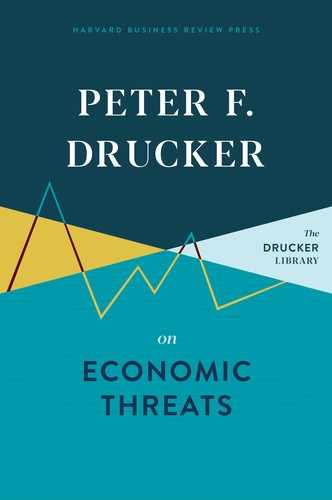CHAPTER THIRTY-FOUR
![]()
The Battle Over Co-Determination
ONE OF THE MOST IMPORTANT social and political disputes in Western Europe these past few years is the battle over co-determination.
Basically, co-determination is the legal system that grants trade unions substantial or controlling membership on boards of directors or on company supervisory boards. In various ways it is the law for larger companies in Germany, Holland, and Scandinavia, and it is under active discussion in Great Britain, Belgium, and France.
In discussing with me the political battle over co-determination, a senior official in the German Ministry of Labor recently said that in his country the new managerial and professional groups are rapidly becoming the majority in postindustrial society. As a result, the unions are trying desperately to deny those groups power and to disenfranchise them before the unions lose too much membership to the middle class.
This, he explained, is why the unions, in their push for employee representation on boards of directors, so adamantly refuse to accept any representatives of middle management and insist on confining board membership to union officers who represent blue-collar workers.
A German trade union official whom I saw during the same trip did not deny this. “Even if they unionize,” he said, “managerial and professional people are not really ‘workers.’ If we allow them a say on company boards, they will always vote with management; and if we do not establish a principle that only bona fide workers have the right to share in the control of business, the labor movement will soon become yesterday.”
At the same time (i.e., in spring, 1977), across the English Channel, everybody was talking about the Bullock Report, the work of a ten-man British Royal Commission headed by Oxford historian Lord (Allan) Bullock, the biographer of Adolf Hitler and Ernest Bevin.
The Bullock Report caused widespread reverberations when it was released in January of 1977. It recommended that the boards of British companies that employ two thousand or more people, including British units of multinational companies based outside the United Kingdom, be refashioned to give workers the same number of representatives as stockholders, providing one third of the company’s employees wanted such representation.
The committee majority said that labor representation in the boardroom (so-called industrial democracy) was already the wave of the present. Moreover, it said such representation would provide a new legitimacy for the exercise of the management function within an agreed policy framework.
The head of Britain’s major labor confederation agreed, predicting the Bullock Report would become “a landmark in the development of our democratic institution.” But the nation’s principal employer group denounced the report, saying that if enacted it would fundamentally change Britain’s free enterprise system.
Both the German trade unionist and the Bullock Report went too far. The Germans were forced to accept middle-management people on the supervisory board and indeed had to agree to grant them a controlling vote in the legislation that went into effect in Germany in 1977.
And the uproar caused by Bullock’s admitted discrimination against managerial and professional people explains why that report’s proposals have been shelved in Great Britain.
But it would be foolish to believe that labor in either country has given up the attempt to disenfranchise management and professional people. In fact, German labor’s first priority is to repeal the provisions of the co-determination law that mandate representation of management people on boards of supervisors. Avowed Socialists, after all, need to believe in the concept of economic-class warfare and find it difficult to cope with the fact of an emerging managerial and professional class.
European trade unionists and their Socialist allies want to disenfranchise managers to prevent their becoming powerful in business and society. Yet this may be their undoing. A good many people in the Socialist parties of Germany, Scandinavia, the Low Countries, and in Great Britain with whom I talked during a European trip in the spring of 1977 felt that the German co-determination battle and the British uproar over the Bullock Report might eventually end middle-class support for Labor or Socialist parties.
“The young management people in this country,” said a middle-of-the-road labor minister in Britain, “still do not like the Tories. But, after Bullock, they probably like Labor even less—and they may have shifted away from us for good, and not only for the next election.”
Thus it seems apparent that co-determination, even where it is merely debated and then set aside, is an explosive issue that has important political as well as social and economic ramifications. We in this country would do well to pay greater attention to this issue. [1981 note: And indeed, three years after this article was first published, the United Automobile Workers began to demand co-determination as its price for supporting an ailing Chrysler.]
(1977)
